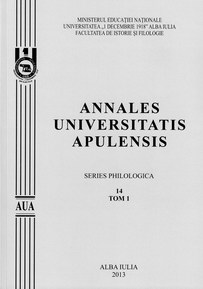Le jeu, un outil pédagogique privilégié en classe de FLE
The Game, as a Privileged Pedagogical Tool in FFL Class
Author(s): Oana Maria PăstaeSubject(s): Foreign languages learning
Published by: Universitatea »1 Decembrie 1918« Alba Iulia
Keywords: game; speaking; motivation; pedagogical tool
Summary/Abstract: Since the widespread introduction of the communicative approach in the 1970`s, the game has become more or less a method for teaching foreign languages centered on the student. The first attempts to introduce the game as a teaching tool in the classroom date from this period. The learning process depends on the quality of the content provided by the teacher and on the way learners assimilate and include such content. The game is not only for children, it is adaptable to all levels, to all public, to all goals and to all contexts. The game develops intelligence, observation, motivation and critical thinking, promotes self-awareness and makes possible the implementation of differentiated instruction. There is a need for meaningfulness in language learning for its better understanding that is why by the game the language students listen to, read, speak and write will be more vividly experience. Games are a welcome break in class, are motivating, encourage students to interact and provide language practice in the various skills: speaking, writing, listening and reading. Using games in class helps teachers to add diversion to the regular activities, relax atmosphere, entertain and promote fluency in language. In the first part, we will define the word "game" and show that it is a motivator and enjoyment for learners. Then, we will present the types of games and explain why playing is so important in the classroom. There are several types of games: presentation games, word games and / or grammar games, language games, dexterity games, dramatizations, role-playing and simulation games etc. Games are useful if students practice the language in a constructive way not just for fun and are used as methods or techniques involving the cognitive aspect of language. It is very important, when using games in a classroom, to choose suitable games, to give clear instructions, to define clear objectives and to debrief or evaluate results. Finally, we will propose a game with simple equipment and easy to manufacture by teachers or learners.
Journal: Annales Universitatis Apulensis. Series Philologica
- Issue Year: 14/2013
- Issue No: 2
- Page Range: 549-558
- Page Count: 10
- Language: French

